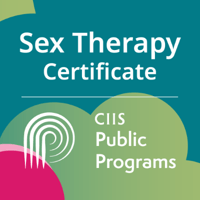I hear it all the time: “my problems aren’t big enough to need therapy,” and “I don’t know what to talk about in therapy.” The thing is, you don’t need to have a problem to want or benefit from therapy. Therapy is about more than solving problems – it’s about processing life in order to maximize the quality of it.
Therapy is for everyone. And for everyone, it’s a uniquely vulnerable experience. There’s no one way to approach it, either, but figuring out the approach that makes sense for you can be tough. We may spend several weeks working through the same subject, or use each week to go over different thoughts and experiences. Each session is yours to use any way you’d like – even if that means showing up without a plan and figuring it out together.
If you’re feeling unsure of where to begin, here are 10 of the many answers to the common problem: I don’t know what to talk about in therapy!
1. Weekly Updates
Some may call this the “small talk” of a therapy session, but it’s the perfect starting point for me to get a sense of what’s currently occupying your mind. The happenings of your day to day are likely at the forefront of your headspace and worth reflecting on with a professional. This is also a great time to celebrate recent achievements (yay!) or vent about a minor conflict so that you can release and move on.
2. Mood Changes
Whether you’re having trouble sleeping, caught in an anxious thought cycle, or feeling especially irritable – noticeable changes in your mood are always worth talking about in therapy. Oftentimes, our mood is our body’s way of communicating with us, and talking through these changes with a therapist can help you learn to listen and better understand your own body.
3. New Anxiety sources (that maybe didn’t exist before)…being in crowds, driving distant places, work meetings
In the same way we enjoy foods as adults that we despised as kids, we also develop new anxieties as our lives and circumstances change. Do you suddenly feel uncomfortable in crowds or find it difficult to speak up at work? Did you used to love road trips but now hate driving outside of your usual route? Sometimes we have obvious triggers for new anxieties, but other times it isn’t so clear. Therapy can be a great place to work through these issues and discover new ways to cope with them.
4. Relationship Conflicts
Whether romantic, platonic, or professional, relationships can feel complicated at times, and working through conflict within your relationships can be tricky, especially when things get emotional. A therapist can offer objective guidance so you can work through the conflict in a safe space and feel confident in your approach to finding a solution.
5. Dating
Dating can be a major source of joy but also a major source of stress and discomfort. Don’t be afraid to bring this up in a session! From navigating insecurities and managing first date jitters to identifying your needs in an ideal partner, talking to your therapist about dating can help you calm your nerves and feel confident while you find the partner you deserve.
6. Adult Friendships
Maintaining friendships through adulthood is a critical part of having a fulfilling life – but it can also be extremely challenging as you grow and change throughout your life. If you’re wondering what to talk about in therapy, friendships can be a great place to start. From making new friends to improving connections with existing friends, there is no shortage of ways that a therapist can help you explore friendships as an adult.
7. Parenting
Parenthood is a unique blend of rewarding and challenging, but it can also be an isolating experience. Whether you have a robust support system or you’re parenting solo, talking through the ups and downs of parenthood with a therapist can be your space to share your feelings and make a plan to care for yourself (even when you’re busy caring for others).
8. Personal Goals
Even when nothing is wrong, people tend to go to therapy to become better, and setting goals is one way to make that happen. Sharing personal goals with your therapist can help with accountability, working through challenges in reaching your goals, or even having someone to cheer you on as you reach smaller milestones along the way to your bigger goals.
9. Childhood
Whether good or bad, oftentimes our childhood is a big part of shaping who we become as adults. On your own, it’s tempting to block out painful childhood memories. In therapy we can explore your childhood to uncover the memories and experiences that impact who you are today and learn how to cope and break free from what no longer serves you.
10. Communication
Communication is at the center of everything. From conflicts to celebrations, how we communicate influences our relationships and the role we play in other people’s lives. But communication isn’t always easy, and the closer we are with someone, the more difficult it can be to communicate certain expectations, boundaries, or needs. In therapy we can talk about how to communicate these needs and even practice what it would be like to have a boundary setting conversation.
As you can see, there are plenty of different topics that you can talk about in therapy, and many of them are related in one way or another. Whether a relationship conflict helps you discover a communication need, or a newfound anxiety is connected to a change in mood, therapy is a space for you to explore your emotions so you can break down your barriers and live the life you were meant to live.





